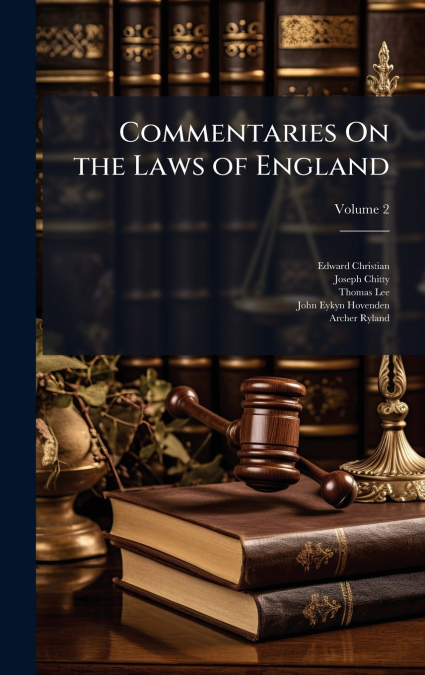
Edward Christian / Joseph Chitty / Thomas Lee
This is Volume 2 of 'Commentaries on the Laws of England,' a foundational work of English law by Sir William Blackstone, here presented with extensive notes and analysis by prominent legal scholars of the 19th century, including Christian, Chitty, Lee, Hovenden, and Ryland. This edition, published in 1838, enriches Blackstone’s original text with references to American cases, providing a valuable comparative perspective for students and practitioners of law.The 'Commentaries' offer a comprehensive overview of English common law, covering a wide range of topics from property rights to criminal law. This volume is an essential resource for anyone interested in the historical development of legal principles and their continuing relevance in modern jurisprudence. Its detailed analysis and extensive annotations make it an indispensable reference for legal scholars, historians, and practitioners seeking a deeper understanding of the roots of the English legal system.This work has been selected by scholars as being culturally important, and is part of the knowledge base of civilization as we know it. This work was reproduced from the original artifact, and remains as true to the original work as possible. Therefore, you will see the original copyright references, library stamps (as most of these works have been housed in our most important libraries around the world), and other notations in the work.This work is in the public domain in the United States of America, and possibly other nations. Within the United States, you may freely copy and distribute this work, as no entity (individual or corporate) has a copyright on the body of the work.As a reproduction of a historical artifact, this work may contain missing or blurred pages, poor pictures, errant marks, etc. Scholars believe, and we concur, that this work is important enough to be preserved, reproduced, and made generally available to the public. We appreciate your support of the preservation process, and thank you for being an important part of keeping this knowledge alive and relevant.